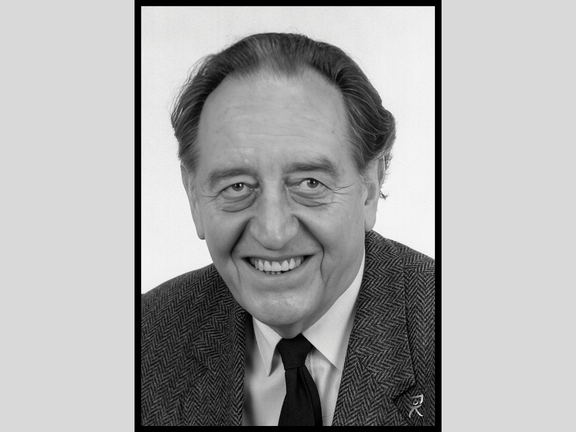Hugo Fechtig was born on 5 October 1929 in Stühlingen, a small town in the southern Black Forest, near the Swiss border. He studied physics in Freiburg and obtained his doctorate in 1958 under Wolfgang Gentner, whom he then followed as an assistant to the newly founded Max Planck Institute for Nuclear Physics in Heidelberg. After working in the USA in 1962/63, he returned to Heidelberg and became head of the “Cosmic Dust” group at MPIK in 1965.
Here, he began with rocket experiments to study micrometeorites and cosmic dust collected by sounding rockets. A dust accelerator for simulation experiments was installed in 1966 – the second of its kind worldwide. Thanks to MPIK Director Josef Zähringer's contacts to NASA, the institute obtained access to lunar samples in 1969. With this, Fechtig obtained worldwide recognition with the determination of the age of large areas on the moon.
After the tragic car accident of Josef Zähringer in 1970, Hugo Fechtig was appointed scientific member and director at MPIK in 1974 and honorary professor at the University of Heidelberg in the following year.
His focus turned to the development of instrumentation at the Institute for missions on board of satellites and later continued with space probes: GIOTTO to comet Halley in 1986, followed by missions to Jupiter. The GIOTTO results revealed that the comet contains primordial interstellar material. The Saturn project CASSINI and the ROSETTA mission with the first comet lander were further milestones, to which Fechtig was still closely associated even after his retirement in 1994.
Hugo Fechtig was an internationally renowned research personality: e. g. as a Distinguished Visiting Scientist at the Jet Propulsion Laboratory and as a member of the ESA Space Science Advisory Committee. In recognition of his achievements in the field, the asteroid 2533 was named after Fechtig in 1991.
He served as the Managing Director of the MPIK from 1979 to 1981 when the institute started structural extensions including a new cosmophysics building.
A quote by Heinz Völk from an article in “Physikalische Blätter” on the occasion of Hugo Fechtig's 60th birthday summarised his importance for space research as follows: “To this day (1989), the space organisations of the USA, Europe and the Soviet Union look to Heidelberg first when they think about flying dust detectors on space probes.”
Thus, as a passionate scientist, Hugo Fechtig's excellent work had a decisive influence on the exploration of the solar system. The Max Planck Institute for Nuclear Physics bids a grateful farewell to Hugo Fechtig and will honour his memory.
Christoph H. Keitel
Geschäftsführender Direktor des Max-Planck-Instituts für Kernphysik
